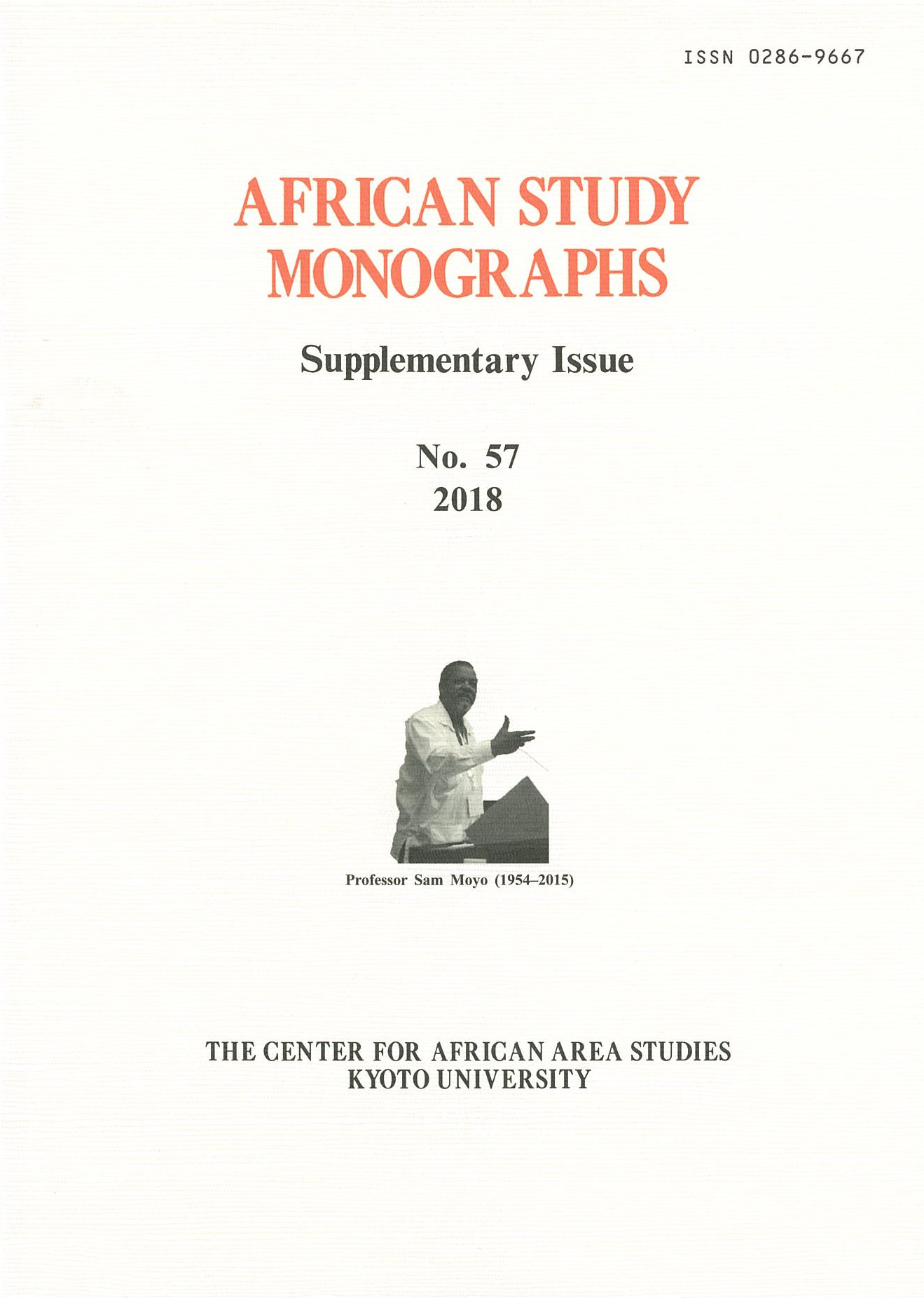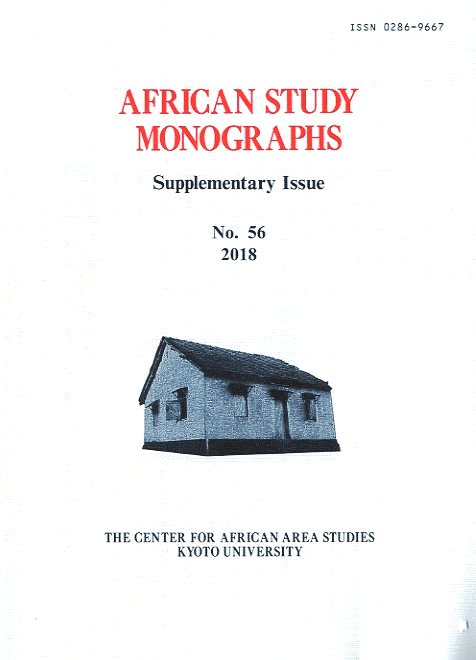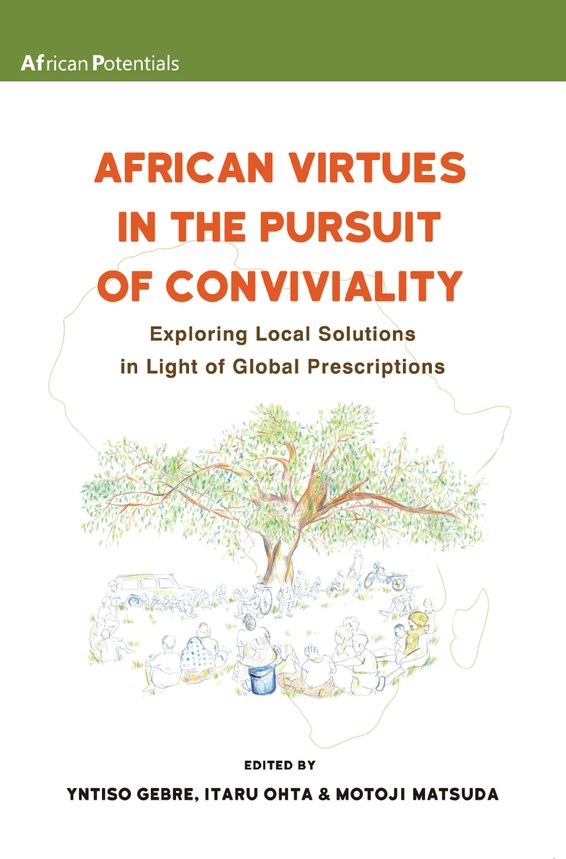[Research Team Meeting] 6th Meeting Environment and Ecology Research Team (June 16, 2018)
Date: June 16, 2018 12:30-14:30
Venue: Room 301, 3rd floor of Inamori Foundation Memorial Hall, Kyoto University
Brainstorming with members
[Research Team Meeting] 9th Meeting Development and Livelihood Research Team (January 26, 2019)
Date: January 26, 2019 13:30-18:30
Venue: Small Meeting Room 2, 3rd floor of Inamori Foundation Memorial Hall, Kyoto University
Presentation and discussion for publication of African Potentials book series
[Joint Team Meeting] 8th Meeting Development and Livelihood Research Team / 7th Meeting Nation and Citizenship Research Team (November 3, 2018)
Date: November 3, 2018 11:30-14:00
Venue: Small Meeting Room 2, 3rd floor of Inamori Foundation Memorial Hall, Kyoto University
Title: From Southern Hemisphere to London, and the North America,Fed-Farms and Regional Agro-processing industry of South Africa in 1930s
Speaker: Atsuko MUNEMURA (Kansai University)
[Research Team Meeting] 7th Meeting Development and Livelihood Research Team (October 1, 2018)
Date: October 1, 2018 13:30-15:30
Venue: Small Meeting Room 1, 3rd floor of Inamori Foundation Memorial Hall, Kyoto University
Title: The Thought of the Universal and the Rarity of Emancipatory Dialectical Thought: Some African Examples
Speaker: Michael NEOCOSMOS (Rhodes University, South Africa)
[7th Meeting Conflict and Conviviality Research Team] (June 16, 2018)
Date: June 16, 2018 12:30-14:55
Venue: 3rd floor of Inamori Foundation Memorial Hall, Kyoto University
Title: African Kings in the Global Era: Ethnic Network among Igbo Diaspora in Japan
Speaker: Hisashi Matsumoto (Yokohama National University)
[Research Team Meeting] 7th Meeting Environment and Ecology Research Team (November 3, 2018)
Date: November 3, 2018 12:30-13:30
Venue: 3rd floor of Inamori Foundation Memorial Hall, Kyoto University
Speaker 1: Ryoma Otsuka (Kyoto University)
Title: Sustainability of Ecotourism and Community Conservation in Bwindi Impenetrable National Park, Uganda: Why Is It Difficult to Follow “Gorilla Rules”?
Speaker 2: Yuji Takenoshita (Chubu Gakuin University)
Title: What do they and I really want to achieve with gorillas? : Too many “stakeholders” around too few gorillas.
[Research Team Meeting] 8th Meeting Conflict and Conviviality Research Team (November 3, 2018)
Date: November 3, 2018 11:30 – 13:50
Venue: 3rd floor of Inamori Foundation Memorial Hall, Kyoto University
Title: Traders’ relationships with the state along the Congo River in these 30 years: Cross-river traders no longer confront each other, but they do not cooperate as well
Speaker: Mikako Toda (Sophia University)
[Research Team Meeting] 8th Meeting Language and Literature Research Team (November 3, 2018)
Date: November 3, 2018 11:30-13:30
Venue: 3rd floor of Inamori Foundation Memorial Hall, Kyoto University
Speaker1: Junko Satake (Poole Gakuin College)
Title:Literature, music and African Potentials: Decolonization in the post-Apartheid South Africa.
Speaker2: Haruse Murata
Title: Creation and publishing of children’s books: Considerations of interviews to writers and illustrators in Benin
[International Conference] The 18th International Union of Anthropology and Ethnological Scientists (IUAES) 2018 World Congress (July 16-20, 2018)
Report of Panel 061: Diversification and Re-organization of “family” and “Kinship” in Africa: Cross cultural analysis on economic discrepancy, conflicts and potential indigenous institutions for social security
Chris Columbus OPESEN (Panel Co-Convenor, Makerere University)
Date: July 19, 2018
Venue: Room 201, Block B, Federal University of Santa Catarina
Introduction
The 18th International Union of Anthropology and Ethnological Scientists (IUAES) 2018 World Congress was held at the Federal University of Santa Catarina (UFSC) in Florianopolis, Brazil from the 16th to the 20th of July 2018 under the theme:” The Past, Present and Future of Anthropological Knowledge. The congress registered 95 panels.” This is a report of Panel 061: Diversification and Re-organization of “family” and “Kinship” in Africa: Cross cultural analysis on economic discrepancy, conflicts and potential indigenous institutions for social security.
To convene a panel, the IUAES 2018 required promoters from at least two continents. in line with this requirement, Panel 061 was convened and coordinated by Wakana Shiino of the Tokyo University of Foreign Studies and Chris C Opesen of Makerere University.
Number of Abstracts Received
The panel attracted and received seven paper abstracts from three continents (countries) notably, Asia (Japan), Africa (Uganda) and South America (Brazil) listed below:
- Transformation of Marriage and Kinship among Nuer Refugees in Uganda: Rethinking the Potential for Reorganization of the Community (Eri Hashimoto)
- African Potentials and Changing Notions of Family: Child Fostering among the Herero People in Namibia (Yumi Kamuro)
- Reorganizing ‘family’ to Keep Security and Pursuit Livelihoods in Exile: The Case of South Sudanese Refugees in Uganda (Isao Murahashi)
- (CANCELED) Claim to Rights and (Re)Negotiate Alliances: Reflections on the Family Conflicts of Widows in Maputo, Mozambique (Aline Beatriz Miranda da Silva)
- Diversification of “Family Care” for Elderly Women in Rural Kenya: Consideration of Potentials beyond “Family” (Kaori Miyachi)
- The Elderly, Spiritualism and Social Power among Buhororo Tribal Societies in Uganda(Ian Karusigarira)
- The Social Experiences of Husbands to Non-FGM Women: Potential African Insights from the Pokot Family Set-Up (Chris Columbus Opesen)
Presentations and Participation
Panel 061 presentations were made in UFSC, Block B, 2nd Floor, Room 201 on Thursday, the 19th of July 2018. Overall, the panel was a success. Out of the seven papers received for example, only one was not presented. This is the presentation of Aline Beatriz Miranda da Silva who had her presentation canceled because the panel was predominantly English based.
Each given 30 minutes, 20 for presentation and 10 for discussion, six presentations were successfully made in two sessions in the panel except Miranda’s.
For participation, each convener (coordinator), presenter and listener was awarded a certificate. If you have not received yours, kindly log in to your page. Unfortunately, Ass Prof. Wakana Shiino, who also doubled as the panel convener did not make it to the congress because its timing coincided with her maternity leave. In her absence, her co-Convenor, Chris C Opesen, therefore coordinated the panel with the help of Kaori Miyachi, Isao Murahashi and Ian Karusigarira.
The 18th IUAES Annals
A call was made for submission of presentations for publication as annals of the 18th IUAES congress up to the 30th of August 2018. This deadline was later extended up to the 20th of August 2018. Those that met the deadline will therefore, have their papers published before the end of 2018.
The 19th IUAES Elections
The 19th IUAES congress will be held in 2022 in India after India put up a spirited and won a well-coordinated election campaign against Croatia.
Closing Remark
The experience in the 19th IUAES was great. The congress offered a platform not only for cross continental and intra-continental scholarly networking but also for insightful discussion of scientific research done under “Diversification and Re-organization of “family” and “Kinship” in Africa: Cross cultural analysis on economic discrepancy, conflicts and potential indigenous institutions for social security.”
To benefit from similar platforms, we need to keep the forthcoming 19th IUAES 2022 in India in our plans. This will enable panel members to have as many presentations as possible published in the IUAES elite journal (annals). A support peer review process in this regard will also enhance these prospects.
Gratitude goes to Wakana Shiino for insightfully putting together the panel and remotely coordinating it, the African Potentials project for the funding support it gave to a number of scholars in the panel that made it to the congress, the entire panel membership for making it to Brazil and in particular, Kaori Miyachi, Isao Murahashi and Ian Karusigarira for the leadership support they rendered to the chair.
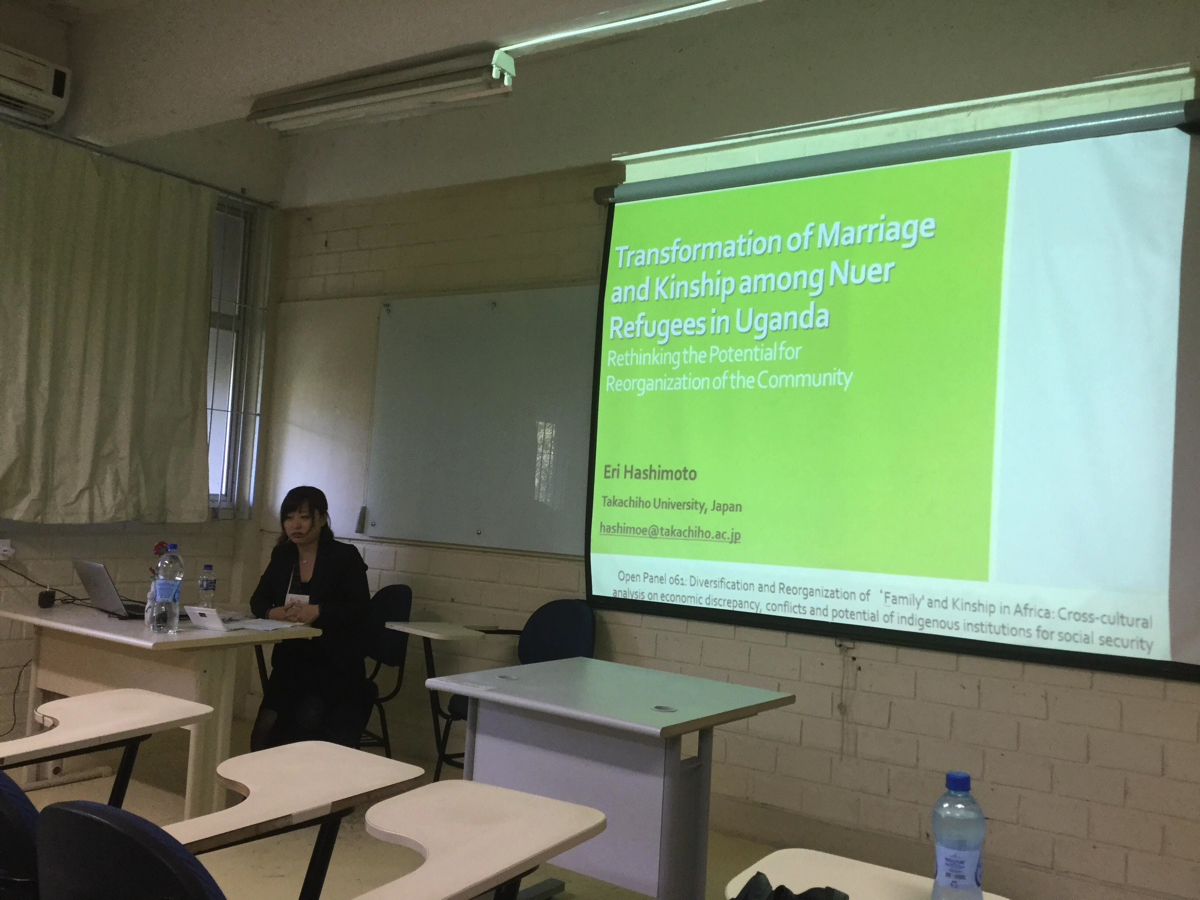
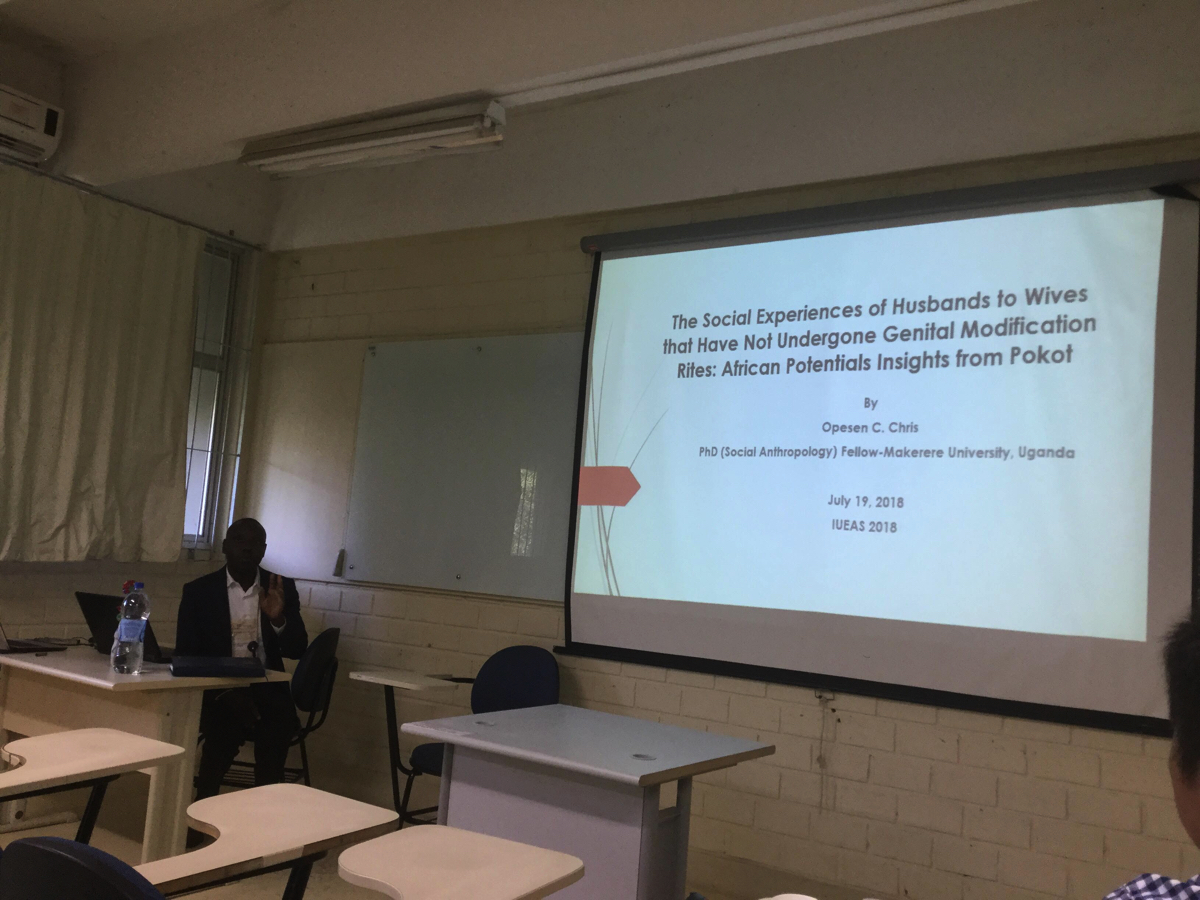
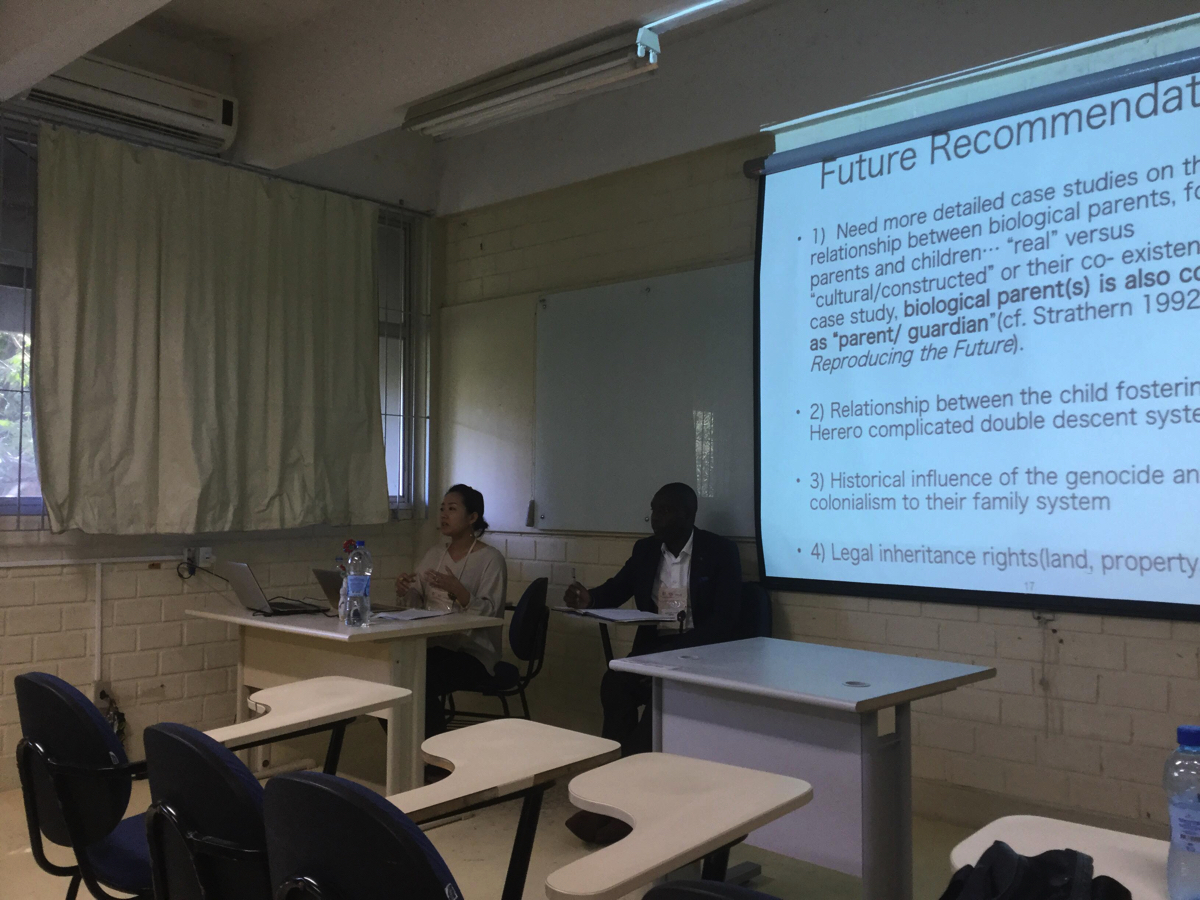
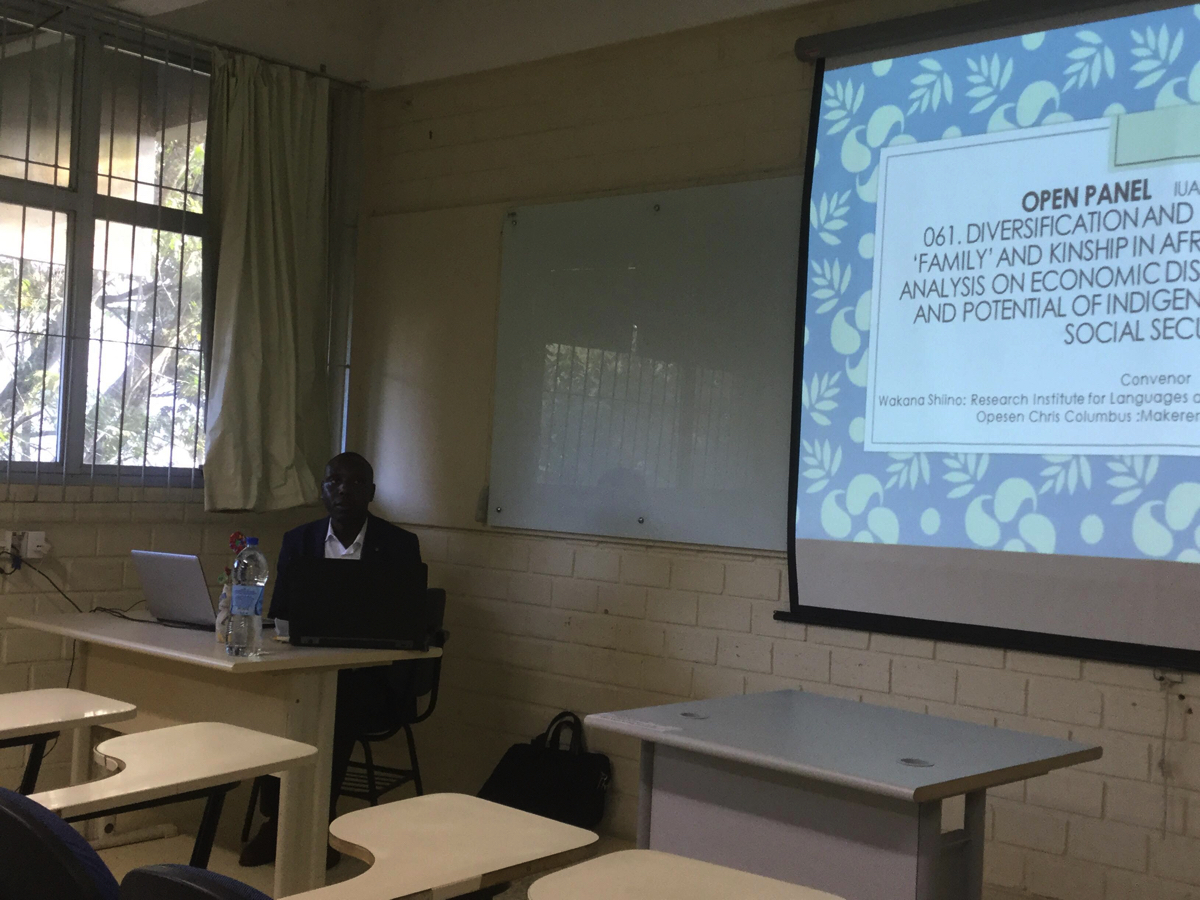
[Japan Society for Southeast Asian Studies] The 99th Conference of Japan Society for Southeast Asian Studies (held on May 27th, 2018)
Joint Panel of “African Potentials” project with Japan Society for Southeast Asian Studies
Title: Transitional justice and subsequent issued in Southeastern Asia and Africa: Comparative consideration on reconciliation and social integration
Date: May 27th, 2018, Sunday, 9:15 – 15:00
Venue: Kitagata Campus, University of Kitakyushu
- Facilitator: Satoru Kobayashi (Kyoto University)
Explanation of objectives: “Transitional justice and subsequent issues in Southeastern Asia and Africa: Comparative consideration on reconciliation and social integration” - – First report: Shintaro Fukutake (Sophia University)
“How conflicts and reconciliations are mentioned: Reading ‘Chega!’ the Final Report of the Commission for Reception, Truth and Reconciliation in East Timor (CAVR)” - – Second report: Toru Ueda (Setsunan University)
“Trajectory of reconciliation: Violence and belief in Dili, East Timor” - – Third report: Hiroko Inoue (Daito Bunka University)
“Who represents the nation?: Politicizing the construction of nation in modern East Timor” - – Fourth report: Satoru Kobayashi (Kyoto University)
“Issues caused by the dual structure of transitional justice in Cambodia” - – Fifth report: Toshihiro Abe (Otani University)
“Unexpected outcome of transitional justice in South Africa” - – Discussant 1: Yoshihiro Nakanishi (Kyoto University)
“Southeast Asian Studies: From a political science perspective” - Discussant 2: Motoji Matsuda (Kyoto University)
“African Studies: From an anthropological perspective”
“Transitional justice” is a global political option chosen for the reintegration of societies in the post-conflict period of 1990s onwards. Such endeavors started in Latin America and Africa and have spread to Eastern Europe and Southeastern Asia to date. Reports and discussion were delivered at this joint panel with purpose to: compare and contrast efforts of transitional justice implemented in Southeastern Asia (East Timor and Cambodia) and Africa (South Africa); elucidate what contemporaneousness behind such activities can be seen; and to clarify what common issues can be recognized through such cases implemented in different regions.
In the first report, Fukutake introduced an overview of the report by the Commission for Reception, Truth and Reconciliation in East Timor and focused the report’s use of a historical description based on “how the people in East Timor led themselves to violent actions. “The second report by Ueda looked at the context of the local reconciliation process developed outside of the transitional justice policy in East Timor. In particular, he observed how a catholic faith group called “Youth Cross” (which travels from regions to regions annually with a cultural leader) played a role in the improvement of conflictual relationships and security. The third report by Inoue pointed out that the exclusion of nonlocal specialists in domestic systems and administration, spread of anti-foreign discourse, and enhancement of centralization under the revival of “tradition” were seen after the establishment of the Democratic Republic of Timor-Leste (May 2002) in contrast to the foreigner-led system construction during the UNTAET period (1999-2002). The fourth report by Kobayashi covered the issue of reconciliation in Cambodia in its post-democratization period, focusing on the July 1994 train attack in particular. Victims of the attack included foreigners. The attackers, a group led by a former Lieutenant Colonel, were imprisoned for life after a previous amnesty was dismissed. The report looked back on a series of events and discussed how “there might have been possibility for evolution of dialogue towards reconciliation where both victims and perpetrator sit together after the amnesty.” The fifth report by Abe first looked at preceding studies on transitional justice that later developed as a global project. Based on his findings, he pointed out there is room to consider conditions specific to the transitional societies in which the project is implemented. The report suggested applying a concept of “Unexpected outcome” as an effective approach because it can be a common term for factual comparative studies.
Following these reports, the first discussant (Nakanishi) made comments and posed questions on: what social effects these reports and documents have in terms of recording and memory perspective; and how religious aspects in political projects in the transitional period should be understood. The second discussant (Matsuda) raised questions such as: what is the purpose of the comparative consideration of transitional justice policies now; and what is the impact transitional justice efforts may have in a place where such policies can be seen as a recession towards anti-foreign nation building. Active discussion on such topics as the impact of transitional justice in context of the examined societies and their potentials followed the reports.
(Reported by Abe)

